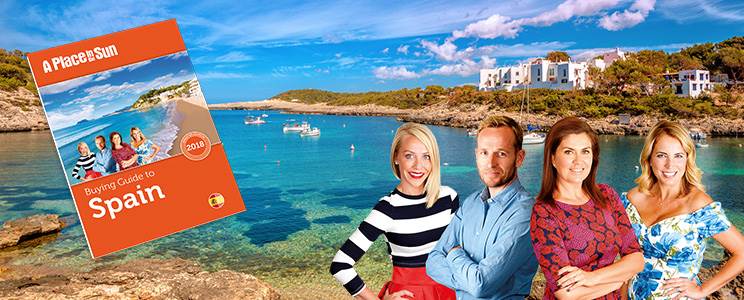
Spanish property market commentator Mark Stucklin outlines what's changing with current holiday rental regulation in Spain.
When it comes to tourism, Spain is a superpower with more than 75 million visitors each year, outstripped only by France and the USA. Millions of visitors have long appreciated the sunny welcome they get. But tourists need places to stay, which means they compete with locals for accommodation where it is scarce, and are thought to be driving up housing costs in some tourist hotspots, according to local politicians and housing activists. This is leading to a clampdown on holiday rentals in areas where housing costs are now a hot potato, and where the tourist welcome isn't quite so sunny.
But holiday rentals are frequently part of the game plan for second home buyers looking for extra income from their investment when not in residence. Platforms like Airbnb are making it easier than ever to reach holiday rental clients, and many owners are taking full advantage of this, but the risks of falling foul of changing rental laws are growing.
Holiday rental restrictions are tightest in the Balearic and Canary Islands, where some sort of restrictions have been in place for more than a decade, but are now getting tighter. A powerful hotel lobby is ready to make the most of anxiety about housing costs for locals to stamp on what they call ‘unfair’ competition from holiday rentals.
The Balearic regional government has recently introduced a new tourism law that restricts holiday rentals to certain areas and types of property. Palma de Mallorca, the Balearic capital, is taking a hard line with an outright ban on tourist rentals in all apartments and semi-detached homes, though detached homes can now get a licence once again. In the rest of the archipelago, it will be difficult, though not impossible, to get apartment rental licences, whilst rural villas on rustic land will no longer be eligible.
The authorities seem to be getting more serious about busting rule breakers, and the fines for illegal tourist rentals have risen to between €20,000 and €40,000, so it’s getting riskier to ignore the regulations.
The restrictions in the Canaries are more confusing than most, which is saying something in Spain. Bizarrely, the latest draft law on tourist rentals in the Canaries aims to stamp them out in areas defined as touristic, but not in other areas. That measure has the fingerprints of the hotel lobby all over it.
In other tourist hotspots, Barcelona already has a moratorium in place on new holiday rental licences, and Madrid is looking to follow Palma towards a total ban in the city centre. We are moving towards a patchwork of outright bans or restrictions on days per year and other obstacles depending on the region, so a typically Spanish legal mess.
Fortunately, for the time being at least, holiday rental restrictions are some of the lightest in the most popular destinations of the Costa del Sol (Andalusia), and the Costa Blanca (Valencian Community). In both regions, you need to register your intention to engage in tourist rentals with the local tourism office, and in Andalusia meet some basic requirements on the condition and features of your property, but there are no impossible hoops to jump through, and no restrictions by area.
But even in areas where restrictions have been in place for years, there are ways around the rules if you are careful. In the Balearics, for example, you can still rent on a short-term or extended stay basis (3 months or more) so long as you are very careful not to offer the property as a tourist rental with services for tourists, claims local legal expert Will Besga.
“Just like under the previous law, the Spanish Tenancy Act allows for the renting out, in principle for any period of time, of any type of property,” explains Besga. “But because there is a regional law regulating touristic rentals, extreme care must be taken in ensuring that the short-term rental does not fall within the touristic rentals’ parameters, which effectively means that ‘short-term lets’ can be done under certain limiting conditions.”
The trend is likely to continue towards restrictions in all hotspots where accommodation is scarce, in particular, the islands and Barcelona.
